I can not see yet another emaciated little body on a screen followed by someone’s “fit of the day.” My brain and my heart are not wired to launch so haphazardly between pain and capitalism, genocide and marketing.
As a social psychologist, I have studied the effects of such dissonance on the brain and our subsequent behavior. Let’s just say, it’s not good.
The constant bad news, dehumanized statistics, algorithmic echo chambers, attention fragmentation, and emotional manipulation make us numb out and dissociate as a means of survival. The compassion fatigue is real.
The Doom-Scroll to Apathy Pipeline
But what is the cost of that?
As I continue to participate in the techno-colonial project by watching whatever meta’s algorithm has decided to feed me, I start to lose my agency.
Why does this matter?
Agency is deeply connected to not just empathy, but resilience-based behavior. As in, agency underlies our capacity for collective action, solidarity and change.
Without the belief that we can be more loving, more kind, more humane, humans do not even try to be.
As the poet Marie Howe writes, let us ask:
What have we made? What are we making?
And who or what made us that we should make such things as we do and did?
Belief Powers Action
One study found that self-efficacy beliefs, or the self-confidence that one can execute certain behaviors, aka a component of agency, explained up to 70% of the variance in pro-social behaviors towards others.
TL;DR if you believe it, you can achieve it. No, but seriously, if you are rooted and connected to a sense of self-actualization and agency, you are more likely to help others. Even others that you do not know.
The media and social media in particular slowly erode our capacity to find that agency. We forget our most basic quality: our belief that, basically, “we’ve got this!”
Such a growth mindset, versus a fixed mindset (see Carol Dweck’s work here), is imperative for embracing difficulty, recovering from setbacks, and having lower anxiety. These qualities are pretty essential in working together for a better world.
So what impacts our self-efficacy?
Albert Bandura (1977), professor of social psychology at Stanford for many decades, is considered the grandfather of self-efficacy theory and said that individuals develop their self-efficacy beliefs by interpreting information from four main sources of influence. I will highlight two.
Performance Outcomes (Mastery Experiences): Successfully completing tasks builds your confidence, while failures reduce it.
Physiological and Emotional Arousal: How you feel physically and emotionally affects your confidence; stress and anxiety can lower it, while staying calm helps.
The phone has become the most significant source of influence on us today. What has that done to our self-efficacy? To our capacity to act out of our own integrity, collective responsibility, and humanity?
Bandura identified these two powerful shapers of self-efficacy—mastery experiences and emotional states—which our phones now systematically undermine, becoming the dominant force reducing our belief in our own capacity to make a difference. For example, the phone causes:
Lost Productivity: When we spend too much time on our phones, we struggle to complete important tasks. This effect is well-documented in research. [See studies here and here)]
Negative Mental Health Impact: This technology overuse leads to significantly higher levels of stress and anxiety. A comprehensive meta-analysis of 172 studies involving 252,337 participants across 28 countries confirms this connection. [See research here].
In this way, our devices create a perfect storm against our agency: preventing us from experiencing the achievements that build confidence while simultaneously flooding us with the very emotional states that diminish our belief in our power to act—a devastating one-two punch to our capacity for compassion and collective action.

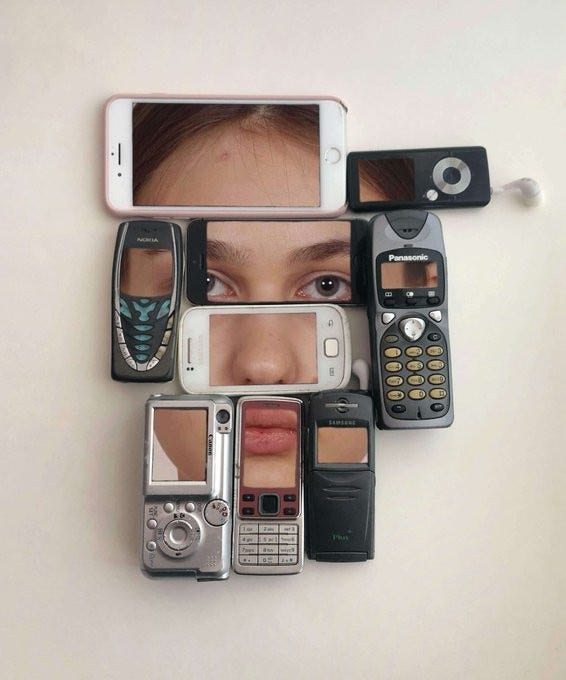
Reclaiming Our Humanity: Finding Agency in a Fractured World
Ok, now that we have identified the problem, at least in part, what do we do?
What keeps me up at night with grief about Gaza, the authoritarianism in our government, the firing of national park staff, the opening of public lands for exploitation and extraction, the disappearing of immigrants and visa holders in broad daylight is this:
Not, will it stop, or will we be okay, but how do we maintain our humanity?
How do we, as the philosopher Ram Dass said, keep our hearts open in hell?
This is not to say we are in “hell,” but rather, if we understand that word mythopoetically, it is a place of injustice, of punishment with no cause, of a gap so wide between the rich and the poor that human life has become in some cases degraded, wasted and made insignificant.
Such a place hurts our souls because it’s a fundamental degradation of the essence of what it is to be a human being: a defamation of life.
I am not writing this to shame your phone use or your social media addiction (I have mine too!), but rather to dream together about how we can claim back our agency and our self-belief. So that we can come together and protect all life.
How can we refuse to have our minds colonized?
How can we resist the imperialism of our hearts?
How can we say no to the purchasing of our bodies for profit?
As an environmental psychologist, of course, my impulse is to urge us all to spend more time with living things.
Go outside. Be with nature. Touch a tree. Put your body in the ocean.
Remind yourself that you are life in contact with life.
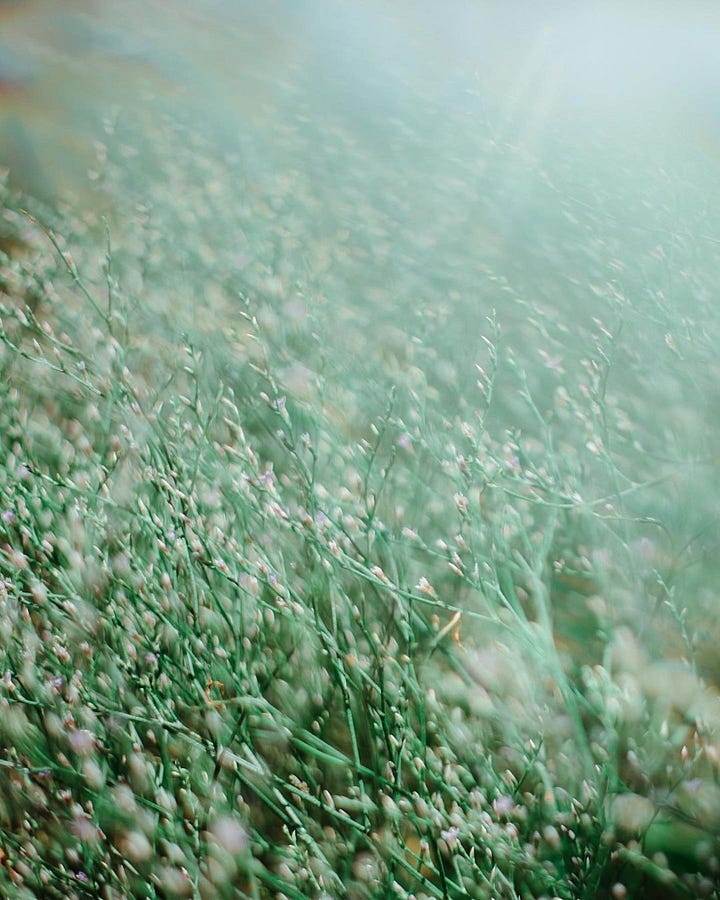
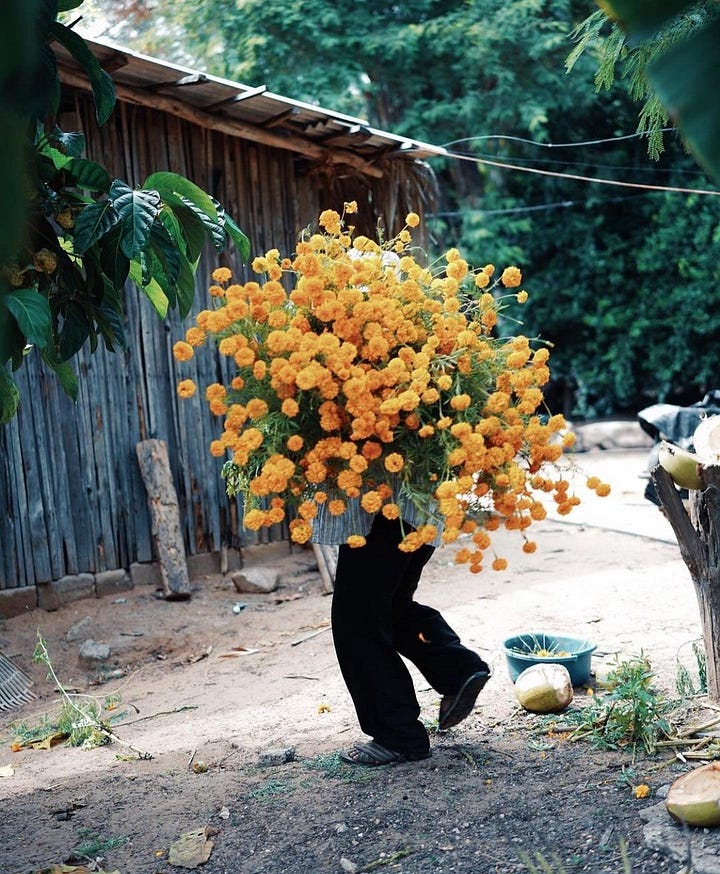
From this biological, cellular, elemental reconnection, I trust that our respect and reverence for the sacredness of life will return to us.
That our veins will flow with red hot love instead of its absence.
That our hearts will be full and open and responsive to the pain of injustice, ready and willing to act to stop it.
We will slowly thaw out, wake up and participate in what is required of us. I know that nature never misses. I believe that the Earth is our greatest ally in the multi-species eco-justice we want.
Wherever a glimmer of our humanity is, there we must dwell.
What is humanity? At its essence, I believe being human means recognizing that all life is precious and deserves our respect and protection.
All life. Without exception.
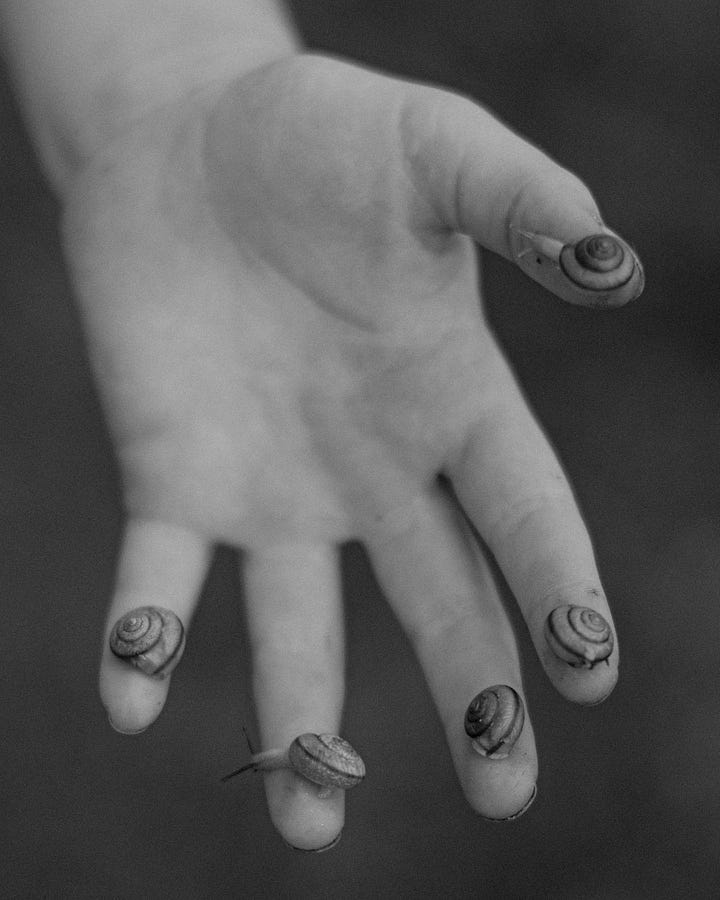
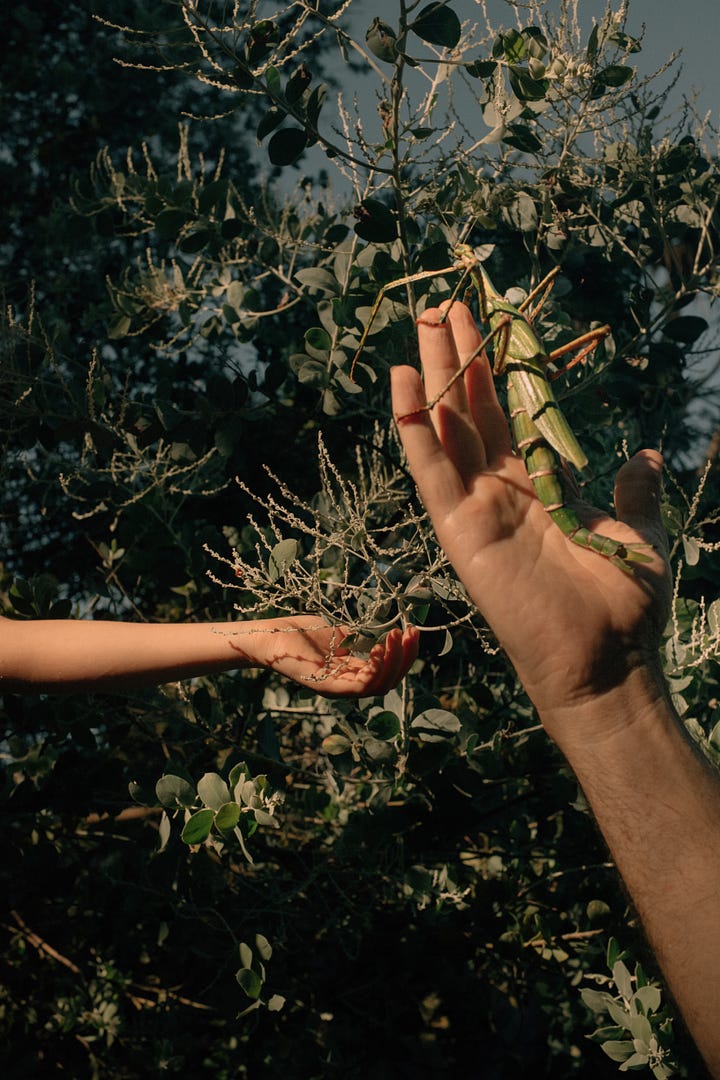
So wherever and whenever I feel myself drifting further away from that core essence, I know I must do whatever it takes to return.
For me, that means making space to grieve the child in Gaza because this is my humanity.
Making space to lavish my loved ones with my laughter because this is my humanity.
Making space to turn off the devices so I can hear my own heartbeat.
So I can listen to my own thoughts.
So I can act from the integrity of my own spine.
Maybe, in the blessed entangled ecological soup that we are a part of, enough of us could wake back up into our love, our care, our deepest and fiercest protection of all those who are vulnerable, and remember: We got this! We do!
The pursuit of such simple rememberings of aliveness reminds me of the poet Ross Gay’s beautiful “Wedding Poem” which is a lovely ending to our time together.
Friends I am here to modestly report
seeing in an orchard
in my town
a goldfinch kissing
a sunflower
again and again
. . .
I could hear from
oh 20 or 30 feet away
and see from the tiny hulls
that sailed from their
good racket,
which good racket, I have to say
was making me blush,
and rock up on my tippy-toes,
and just barely purse my lips
with what I realize now
was being, simply, glad,
which such love,
if we let it,
makes us feel.
It’s only ever been up to the few who believe the impossible is anything but that a new day dawns. In fact, maybe it is already on its way.
I believe in you.
With love.
Free Palestine.
~ Lindsay





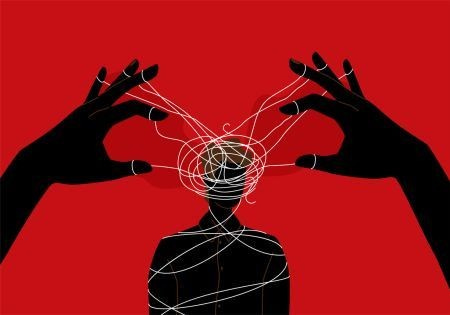
Exactly what I’ve been thinking about these weeks when feeling so passionate yet disempowered… thank you for what you write 🙏